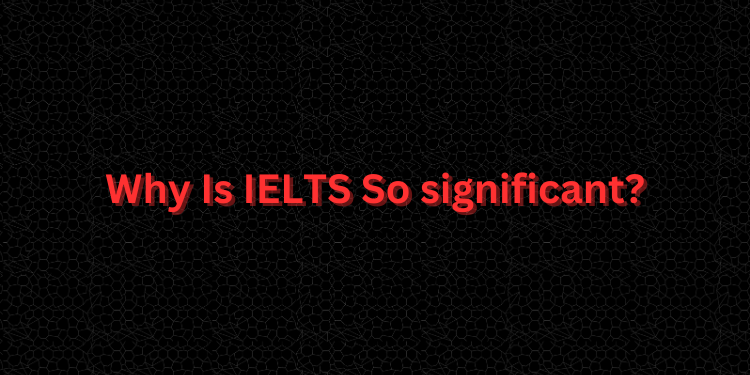IELTS (International English Language Testing System) is one of the most widely known English language competency examinations for immigration and academic purposes. This article will examine the IELTS full form and abbreviation, its significance and frequently asked questions.
What Is The IELTS Full Form?
“International English Language Testing System” is the full form of IELTS, and its abbreviation is IELTS.
What Exactly Is IELTS?

IELTS is a widely renowned English language proficiency exam that evaluates the candidate’s capacity for successful English communication. Universities, businesses, and immigration officials use it frequently for academic and immigration purposes.
The Academic test is for those seeking admission to higher education institutions. The General Training test applies to those seeking employment, immigration, or non-academic training in an English-speaking country.
Why Is IELTS So significant?

IELTS is essential for several reasons:
Academic institutions use IELTS scores to evaluate the English language competency of prospective overseas students.
Businesses use IELTS scores to evaluate the English language ability of job candidates who are required to communicate effectively in English at work.
Immigration authorities use the score of IELTS to evaluate the English language proficiency of persons that who want to immigrate to an English-speaking country.
What Sections Make Up The IELTS?
IELTS evaluates a candidate’s skills in four areas: listening, reading, writing, and speaking.
Listening:
The Listening component evaluates a candidate’s comprehension and interpretation of spoken English. The candidate must listen to the recordings and respond to the questions.
Reading:
Each segment of the examination contains a different style of reading passage. Candidates are required to read the quotes and answer the questions.
Writing:
There are two tasks on the exam. Task 1 requires the candidate to describe a chart, graph, or diagram, while Task 2 requires the candidate to compose an essay.
Speaking:
In this portion, evaluation depends on the candidate’s ability to communicate successfully in spoken English. The examination has three sections.
In Part 1, candidates are required to respond to generic inquiries about themselves. Phase 2 requires the candidate to discuss a topic for two minutes. In Part 3, the candidate must respond to follow-up questions about Part 2’s case.
FAQs
Can one person take the IELTS exam many times?
A: Yes, he can take the IELTS many times, also there is no limit on how many times he can do so.
Is there an age restriction for taking the IELTS?
A: No, there is no age restriction for taking the IELTS exam.
Conclusion
IELTS is a widely renowned English language proficiency exam that evaluates the candidate’s capacity for successful English communication. Its significance resides in its academic and immigration applications.
I did my best to compile all valid information In this article so let me know your opinion in the comments section.
